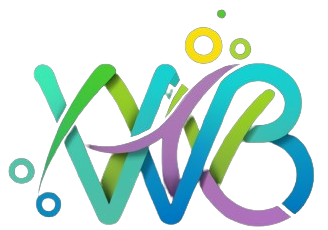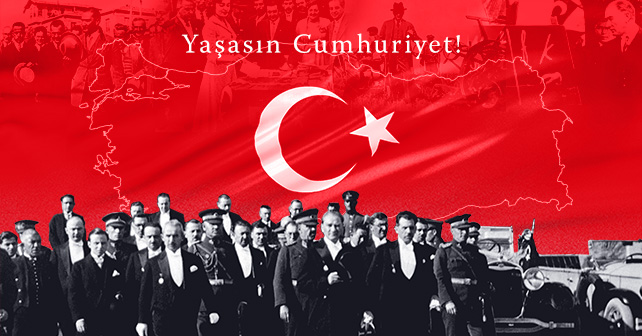Introduction
Cumhuriyet, or Republic in Turkish, refers back to the established order of the Republic of Turkey in 1923, a transformative occasion in the nation’s history. This transition marked the end of the Ottoman Empire and the beginning of a new generation characterized by means of modernism, secularism, and nationalism below the leadership of Mustafa Kemal Atatürk. This article delves into the diverse aspects of the Republic’s formation, its importance, and its enduring impact on Turkish society.
Historical Context
The Fall of the Ottoman Empire
The decline of the Ottoman Empire inside the early Cumhuriyet twentieth century set the degree for the emergence of the Turkish Republic. Multiple elements, including military defeats, economic difficulties, and internal strife, culminated inside the empire’s dissolution after World War I.
The Role of World War I
World War I substantially weakened the Ottoman Empire, main to its eventual disintegration. The Allied Powers’ profession of Istanbul and the Treaty of Sèvres (1920) in addition dwindled the Ottoman sovereignty.
The Turkish War of Independence
The Turkish War of Independence (1919-1923) become a pivotal battle that saw Turkish nationalists, led via Mustafa Kemal Atatürk, fight towards occupying Allied forces and set up the foundation for the new republic.
Establishment of the Republic
The Proclamation of the Republic
On October 29, 1923, Mustafa Kemal Atatürk proclaimed the Republic of Turkey, marking a radical shift from the Ottoman Sultanate to an earthly, national republic.
Mustafa Kemal Atatürk’s Leadership
Atatürk’s vision and leadership were instrumental within the status quo of the Republic. His guidelines targeted on modernization, secularism, and nationalism, aiming to align Turkey with Western international locations.
Key Reforms and Policies
Atatürk carried out complete reforms in numerous sectors, along with education, regulation, language, and economy, fundamentally transforming Turkish society.
Societal Transformations
Educational Reforms
The unification and modernization of the schooling machine have been imperative to Atatürk’s imaginative and prescient. He hooked up secular, country-controlled colleges and universities to update spiritual institutions.
Legal and Political Reforms
Atatürk added a chain of criminal reforms, replacing Islamic laws with a secular civil code modeled after European structures. The new prison framework aimed to sell gender equality and person rights.
Language and Cultural Reforms
The adoption of the Latin alphabet and the purification of the Turkish language from Arabic and Persian impacts had been a part of Atatürk’s cultural reforms to reinforce countrywide identification.
Economic Development
Industrialization Efforts
The early republican era noticed vast efforts toward industrialization, with investments in infrastructure, manufacturing, and kingdom-owned companies.
Agricultural Reforms
Reforms in agriculture aimed to modernize farming practices and increase productivity, critical for the predominantly agrarian economic system of the time.
Trade and Economic Policies
Atatürk’s authorities pursued guidelines to broaden home industries and reduce dependency on overseas imports, fostering financial independence.

Political Landscape
One-Party Rule
The early years of the Republic have been characterized by one-party rule beneath the Republican People’s Party (CHP), which facilitated the implementation of Atatürk’s reforms.
Emergence of Multi-Party System
The transition to a multi-birthday celebration political gadget inside the Nineteen Forties and 1950s marked a significant evolution in Turkish democracy, main to more political pluralism.
Role of the Military
The Turkish army has played a important position within the republic’s records, regularly intervening in politics to uphold secularism and countrywide harmony.
Cultural Impact
Influence on Arts and Literature
The Republican era noticed a flourishing of arts and literature, with a focus on national subject matters and modernist styles.
Media and Press Freedom
The established order of a unfastened and cutting-edge press turned into part of the wider cultural transformation, promoting public discourse and education.
Role of Women
Women’s rights superior notably beneath the Republic, with criminal reforms granting women the right to vote and access to training and employment opportunities.
Challenges and Controversies
Political Turbulence
Despite the progress, Turkey’s republican records has been marked with the aid of political instability, together with navy coups and political assassinations.
Human Rights Issues
Human rights have remained a contentious trouble, with ongoing debates about freedom of expression, minority rights, and political repression.
Balancing Secularism and Religion
The tension among secularism and religious conservatism maintains to form Turkish politics and society, reflecting deep-seated cultural divisions.
International Relations
Alignment with the West
Turkey’s overseas coverage under the Republic has been oriented toward alignment with Western international locations, consisting of membership in NATO and aspirations for EU membership.
Relations with Neighboring Countries
Turkey’s geopolitical role has necessitated complicated relations with neighboring international locations, balancing nearby interests and safety worries.
Global Influence
As a local power, Turkey’s impact extends past its borders, impacting international politics and international economic trends.
Personal Stories and Case Studies
Life Under Atatürk’s Reforms
Personal bills from the early republican era illustrate the profound effect of Atatürk’s reforms on each day life, from training to social customs.
Modern Turkey: A Citizen’s Perspective
Contemporary testimonies from Turkish residents highlight the continuing challenges and achievements within the context of the Republic’s legacy.
Notable Figures in Turkish Republican History
Profiles of key figures who have shaped the Republic, from political leaders to cultural icons, provide perception into the human dimensions of Turkey’s transformation.
Expert Insights
Interviews with Historians
Historians provide perspectives at the importance of the Republic’s formation and its effect on Turkish and international records.
Political Analysts’ Views
Political analysts speak the present day nation of Turkish democracy, the demanding situations it faces, and its potentialities for the future.
Sociologists on Cultural Shifts
Sociologists discover the cultural shifts introduced about by the Republic, analyzing changes in identity, values, and social norms.



